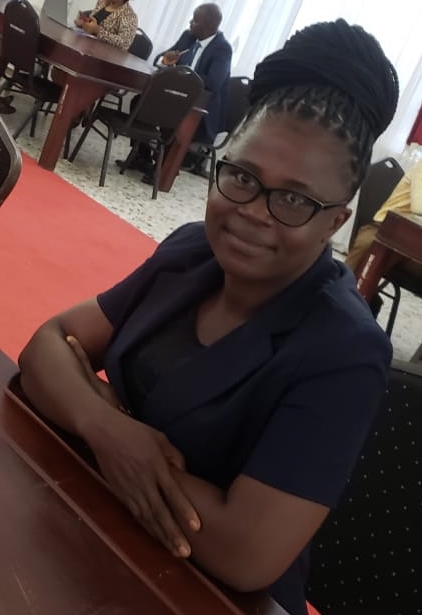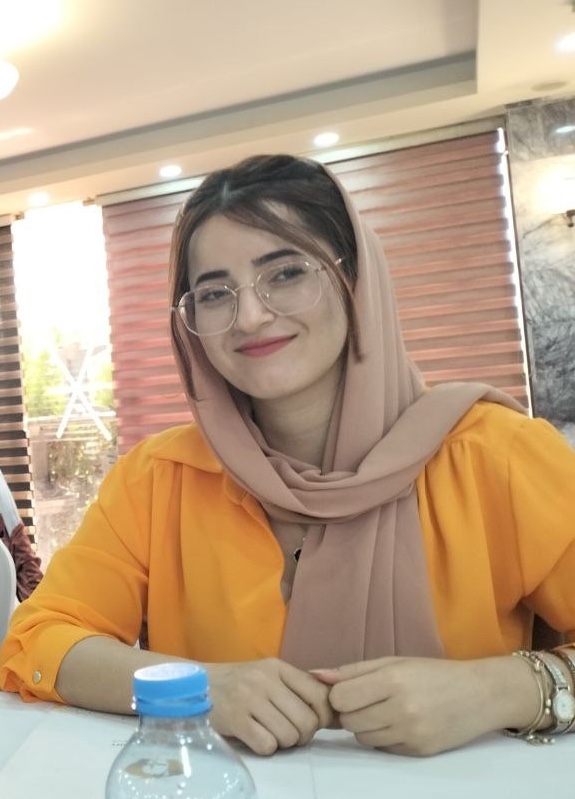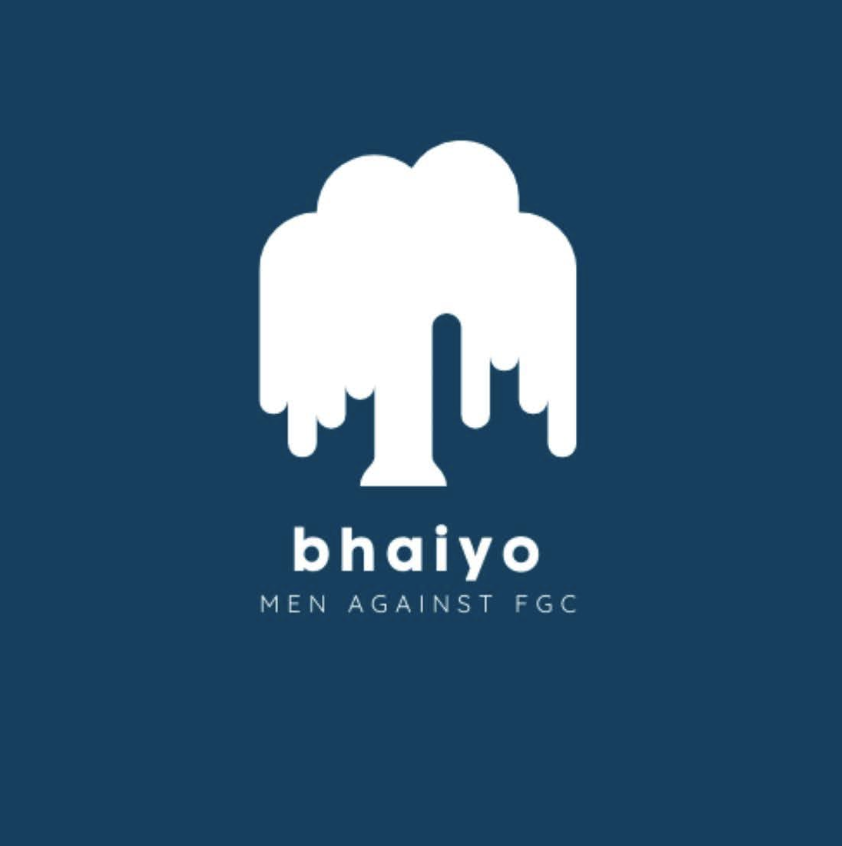Grief to promoting education: Jacqueline’s inspiration to end FGM/C

By Megan Seaver Jacqueline’s story with female genital mutilation/cutting (FGM/C) is one of both survival and advocacy. She works tirelessly to prevent other families from pressuring their daughters to undergo FGM/C, and the origins of her work are from her own insight after undergoing the practice herself. “Until age 7 on that day, I had two lovely childhood girl friends… We were meant to be mutilated on the same day. But me being the granddaughter of the cutter, they went through the exercise first… It ended up causing their death, because the bleeding from the cut began to spread.” Jacquline found it difficult to forgive her grandmother for her participation in carrying on the harmful practice. This loss of her friends and the disagreements with her grandmother allowed her to realize how dangerous FGM/C is. “Going through the practice of FGM/C [female genital mutilation] myself at a very early age and also seeing other girls go through it too, I know that pain that the cut causes. That is why I feel the practice must end with me, and a new generation must begin with me, so no one else feels that pain.” “I knew that it was my mission, to carry on this message to a wider audience. In spirit, in my community, and in my country. And to also save my girls from going through the same practice. I have three beautiful girls and none of them are taking the cut.” Jacqueline is the founder of the Covenant Foundation for Girls (COFGIRLS), The organization focuses on providing educational information about the dangers of FGM/C to young girls, and also goes to rural areas to create dialogues surrounding ending FGM/C. In 2010, Jacqueline and her team received a grant from Equality Now to support their educational efforts to visit villages to educate young girls and their parents about FGM/C. “So we were a team of seven persons… but four of my other teammates did not go through the practice, so they didn’t understand the [negative] response we would get when bringing up FGM/C in rural villages.” Taboos associated with speaking about FGM/C can make educational efforts difficult and conversations to end the practice were met with hostility; Jacqueline remembered in one village, choosing to stick up for her teammates, and taking responsibility for bringing up the topic of FGM/C in that setting. She pointed to the combination of a lack of education and the establishment of the practice within the rural communities that made this advocacy work so challenging. Jacqueline does not view FGM/C as “a cultural heritage that needs to be upheld.” Rather, she emphasizes a “need to have a national dialogue, to bring together stakeholders and chiefs” to work towards ending it. Years later, her activism led her to attend the 2023 Women Deliver Conference held in Kigali, Rwanda. At the conference, Jacqueline signed on as a founding member of the newly emerged End FGM/C Network Africa, an organization aimed at uniting voices of advocacy in the hope of influencing those in power to support the end of FGM/C in Africa. The future is bright for Jacqueline’s advocacy work. When asked about where to go from here, she mentioned the vital importance of educating men on the harm that FGM/C causes, and how their support of the practice in communities she works with has led to irreversible trauma for the women in their families and communities. “Everyone, especially parents of survivors, need to learn the truth about female genital cutting and help us to save our girls’ futures. FGM/C is cruel, deadly, and an abuse of human rights.”
Secrecy leads to the continuation of FGC in families and communities

By Megan Seaver Bakhan is an activist and advocate against female genital cutting (FGC), and she is passionate about educating young girls on the topic. Bakhan also works as a Project Supervisor for Wadi, an organization promoting self-help programs in the Middle East such as monitoring and lobbying for citizen rights: rehabilitation projects for long-term prisoners, literacy programs, education and training for women, public awareness of and ending domestic violence as well as campaigns against FGC. Bakhan specifically assists in the organization’s programs to protect girls from FGC. I had the honor of interviewing Bakhan about her work and what inspired to get involved in work to end FGC. “I came to know FGC very late in my life, because I graduated college and I was searching for a job. So I was searching for a position as an English translator, and I came across this German organization called Wadi and they were working on FGC. I remember the first week when I was starting [at Wadi] and hearing about FGC and thinking I had never heard of it happening in my own community. It was really shocking for me to hear something like that.” “I started thinking about whether I had friends or family members that had gone through FGC without me knowing. I began asking people in my family and other people I knew if they had gone through the practice. And I learned that a lot of people in my life and my family and friends had undergone FGC.” “I learned that two of my cousins were mutilated. I remember being super young and we were in our grandmother’s house and two of my cousins went somewhere and came back and then I saw them go into another room and heard them giggling and I thought I was like an outcast. I was separated from them for some reason.” “I asked my mom about what happened to my cousins and how come it didn’t happen to me? She said your dad didn’t let them, he said that no one will hurt my girls.” “I was fortunate to have someone in my life and my family to protect me, but at the same time I was feeling very bad for my cousins.” Bakhan was the first of her family to not undergo the practice. Instead, she bore witness to her mother talking about her own experiences with FGC. “She said ‘I’m also mutilated,’ and I asked her ‘how do you feel?’ She said ‘I don’t think about it because it’s so common.’” Learning about her family’s history with the practice inspired Bakhan to dive deeper into her activism work. “The more I worked [to end FGC], the more I realized how unaware society is about the practice and how dangerous that can be.” “I have been working with Wadi for six years now, and I still believe that there will never be a point where I am not shocked by the stories I hear from survivors. We also do field visits and we go to the villages where FGC is still practiced, because in that society, especially in the cities, it’s not as common.” When I asked Bakhan about the impact of those visits, she told me of how deeply rooted the practice can be in the social norms of the communities. “I sit and talk with people and they still totally believe in the practice and they are proud of it and they are thinking of mutilating their daughters.” “My last experience with a field visit was a month ago. We went to a rural area and we were doing our normal seminars and there was a very young girl, almost the same age as me and she had a daughter and we were talking about FGC. At the end I asked her ‘do you still believe in FGM’ because I assumed that after the conversation we had that she wouldn’t. But she was so firm on her beliefs that FGC is good and should be done.” “If you stop working, the practice resurfaces. We always try to go back to those places after a couple of months or a year. We go back in order to find out whether they are doing it again or not. And sometimes we go there again, and they say they’ve stopped doing FGC because there was an organization coming and they knew it was us.” “[These conversations with villagers tend] to not be immediately welcoming because this is a sensitive topic. So we always make sure when we go that we don’t start with FGC. We try to talk about something related to it like other health issues.” Bakhan also spoke about the importance of involving community leaders, particularly men in the work against FGC, since they have more decision making influence in these societies. “We forget about the male position in this. Most of the time in our community men do not know about FGC. They are completely unaware of it and when you have a victim of FGC and they get married to a man and the man is dealing with a trauma which he does not understand, which creates issues within marriages. So we need to open the conversation to men.” In looking to the future, I thought it was important to ask Bakhan what advice she would give to her younger self and other girls. She said: “I want people to question more. I never asked why this is happening. Curiosity is something good to have. I think this is one of the things young people should always ask why things are happening, and I think that’s advice for myself, don’t go with the flow, ask questions. Know what you are getting yourself into.”
Conversation with a Bhaiyo: Advising a concerned father

By Urvashi Sharma I recently spoke with Mohammad Chappalwala about being a Bhaiyo, or male ally, and some of his experiences. It was a great opportunity to learn more about Mohammad’s story, and the work he has done towards ending FGC. This story is just one example of the necessity for men to stand up and speak out, to help support the ending of this harmful practice from continuing. Mohammad and Mr. N were initially connected through Sahiyo, as Mr. N was concerned about undergoing a separation from his wife and the potential implications of his young daughters being cut: “He has two daughters, now probably aged six and eight.” Looking for a fellow father to speak with on this issue, Mr. N was introduced to Mohammad via Whatsapp, and a conversation on mutual interests ensued. Mohammad was pleasantly surprised by the fact that “he really was quite open about specific details in his life…because he was very invested in FGC not happening to his daughters.” Soon, Mohammad was able to provide advice on the matter: “I started with small suggestions of ways in which he could approach the issue based on what I had learnt from the [Sahiyo Activists] Retreat, talking with Aarefa etc., and we decided that he would speak with his wife first and convince her not to give in to what her parents wanted to be done to the daughters. I suggested this because in my experience, most elderly members (age 60+) of the community are very rigid in their thinking and are difficult to convince.” Mr. N had never spoken with his wife about their daughters undergoing FGC, and wanted to include Mohammad in the effort to convince his wife that his daughters should not be cut. “In the end I talked to his wife and she said that she was also against FGC and that she would not let it happen to her children regardless of the stance of her relatives.” Afterwards, Mohammad was able to share this good news with Mr. N. “I went back… and told him that his wife was mostly sorted and that he shouldn’t worry that much anymore.” The two men stay in touch on and off, and this interaction led Mohammad to “ think of more complicated cases and how we reach those people. How do we tell them that we exist?” Ultimately, we agreed that storytelling itself is powerful in that if you hear about something that has happened to you from a person to whom it has also happened, you will find greater comfort in that. Through the work that we do at Sahiyo of sharing stories and connecting survivors and allies, there is an emphasis on making sure that everyone feels equally heard and represented. As another member from Bhaiyo Murtaza Kapasi has said: “Bhaiyo allows men to have open and honest conversations about topics they may or may not know should be important to them. As brothers, it’s our collective responsibility to leave the world safer than we found it for those that we love. Bhaiyo aims to raise awareness to help advocates and survivors working to end FGC today.” Sahiyo’s Editorial Team aims to make the storytelling process more accessible. Zoom Interviews are an option for anyone who is uninterested in the writing experience, but still looking to share their story. Please contact editor@sahiyo.com for more information.
